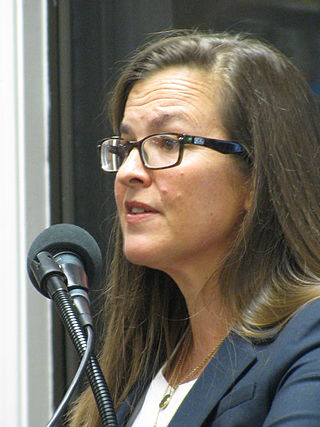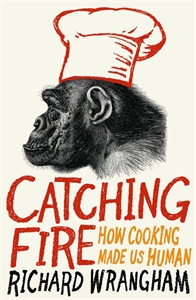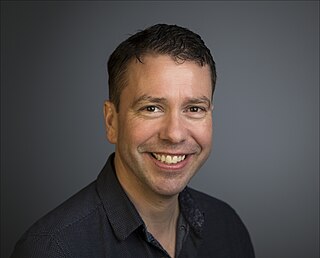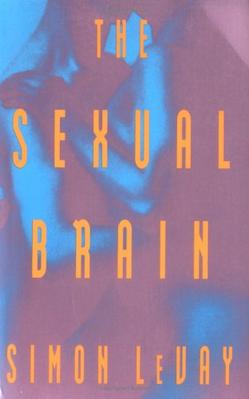
Steven Arthur Pinker is a Canadian-American cognitive psychologist, psycholinguist, popular science author, and public intellectual. He is an advocate of evolutionary psychology and the computational theory of mind.

Eating is the ingestion of food. In biology, this is typically done to provide a heterotrophic organism with energy and nutrients and to allow for growth. Animals and other heterotrophs must eat in order to survive — carnivores eat other animals, herbivores eat plants, omnivores consume a mixture of both plant and animal matter, and detritivores eat detritus. Fungi digest organic matter outside their bodies as opposed to animals that digest their food inside their bodies.

On Aggression is a 1963 book by the ethologist Konrad Lorenz; it was translated into English in 1966. As he writes in the prologue, "the subject of this book is aggression, that is to say the fighting instinct in beast and man which is directed against members of the same species."

The triune brain is a model of the evolution of the vertebrate forebrain and behavior, proposed by the American physician and neuroscientist Paul D. MacLean in the 1960s. The triune brain consists of the reptilian complex, the paleomammalian complex, and the neomammalian complex (neocortex), viewed each as independently conscious, and as structures sequentially added to the forebrain in the course of evolution. According to the model, the basal ganglia are in charge of primal instincts, the limbic system is in charge of emotions, and the neocortex is responsible for objective or rational thoughts.

The Blank Slate: The Modern Denial of Human Nature is a best-selling 2002 book by the cognitive psychologist Steven Pinker, in which the author makes a case against tabula rasa models in the social sciences, arguing that human behavior is substantially shaped by evolutionary psychological adaptations. The book was nominated for the 2003 Aventis Prizes and was a finalist for the Pulitzer Prize.

The China Study: The Most Comprehensive Study of Nutrition Ever Conducted and the Startling Implications for Diet, Weight Loss and Long-term Health is a book by T. Colin Campbell and his son, Thomas M. Campbell II. The book argues for health benefits of a whole food plant-based diet. It was first published in the United States in January 2005 and had sold over one million copies as of October 2013, making it one of America's best-selling books about nutrition.

Annie Jacobsen is an American investigative journalist, author, and a 2016 Pulitzer Prize finalist. She writes for and produces television programs, including Tom Clancy's Jack Ryan for Amazon Studios, and Clarice for CBS. She was a contributing editor to the Los Angeles Times Magazine from 2009 until 2012.

The Complex: How the Military Invades Our Everyday Lives is a book about the United States military, written by journalist Nick Turse. It was published in 2008 in hardcover format by Metropolitan Books. The book describes the vast changes in the industrial complex of the U.S. military from the days of President Dwight D. Eisenhower to 2008, its effect on American society, and how the military and private business spheres interact with each other. The book received positive reviews in Mother Jones and Inter Press Service, and a critical review in Kirkus Reviews.

Catching Fire: How Cooking Made Us Human is a 2009 book by British primatologist Richard Wrangham, published by Profile Books in England, and Basic Books in the US. It argues the hypothesis that cooking food was an essential element in the physiological evolution of human beings. It was shortlisted for the 2010 Samuel Johnson Prize.

Homeostatic feeling is a class of feelings that inform us about our physiological condition. In his earlier work Antonio Damasio used "primordial feeling" but he now prefers the term "homeostatic feeling" for the class.

Hungry Ghosts: Mao's Secret Famine is a book about the Great Chinese Famine by British author Jasper Becker, the former Beijing bureau chief for the South China Morning Post. Becker interviewed peasants in Henan Province and Anhui Province, both of which were significantly affected by the famine. Hungry Ghosts was the first major English book to provide a "comprehensive accessible account" of the man-made famine.

Vyvyan Evans is a British cognitive linguist, digital communication technologist, popular science author, science fiction author and public intellectual. He has published fifteen books, both non-fiction and fiction. He holds a Ph.D. in Linguistics from Georgetown University. He is an advocate of the usage-based model of language development, the domain-general view of mind, and the importance of non-verbal, paralinguistic cues in communication—the development of emoji as a system of digital communication being a case in point. Evans is also a published science fiction author. His writing envisages a near future in which language is not learned but streamed.

Heaven Is a Playground is a 1976 book by Rick Telander. It describes Telander's observations of the streetball culture in Brooklyn during the summer of 1974. Among the players featured in the book are Fly Williams and Albert King. The book was ranked #15 in a 2002 Sports Illustrated list of the Top 100 Sports Books of All Time.

The Sexual Brain is a 1993 book about brain mechanisms involved in sexual behavior and feelings, and related topics such as sexual orientation, by the neuroscientist Simon LeVay. The book was praised as a well-written work on science. However, some reviewers pointed out factual errors, and noted that LeVay failed to prove that homosexuality has a biological basis.

Waking Up: A Guide to Spirituality Without Religion is a 2014 book by Sam Harris that discusses a wide range of topics including secular spirituality, the illusion of the self, psychedelics, and meditation. He attempts to show that a certain form of spirituality is integral to understanding the nature of the mind. In late September 2014, the book reached #5 on The New York Times Non-Fiction Best Sellers list.

Dave Asprey is an American entrepreneur, author and advocate of a low-carbohydrate, high-fat diet known as the Bulletproof diet, about which he has made claims criticized by dietitians as pseudoscientific. He founded Bulletproof 360, Inc. in 2013, and in 2017, founded Bulletproof Nutrition Inc. Men's Health described Asprey as a "lifestyle guru".

Flossie & the Fox is a 1986 picture book by Patricia C. McKissack about a girl, Flossie, who takes some eggs to a neighbor, meets a fox on the way and manages to outwit it. In 1991, a film adaptation of the book was made with the author narrating.

Why Buddhism is True: The Science and Philosophy of Meditation and Enlightenment is a 2017 book by Robert Wright. As of August 2017, the book had peaked at The New York Times No. 4 bestseller in hardcover nonfiction.

Human Compatible: Artificial Intelligence and the Problem of Control is a 2019 non-fiction book by computer scientist Stuart J. Russell. It asserts that the risk to humanity from advanced artificial intelligence (AI) is a serious concern despite the uncertainty surrounding future progress in AI. It also proposes an approach to the AI control problem.

I'm a Hungry Dinosaur is a 2015 children's picture book written by Janeen Brian and illustrated by Ann James. It is about a small dinosaur that makes a mess baking and eating a cake.




















